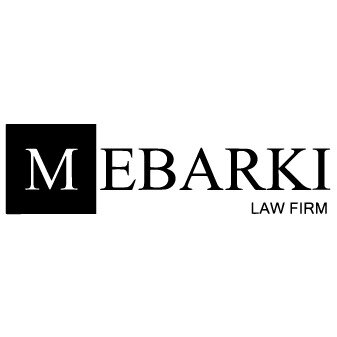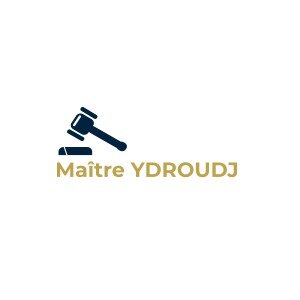Best Energy Regulatory Law Lawyers in Algeria
Share your needs with us, get contacted by law firms.
Free. Takes 2 min.
Or refine your search by selecting a city:
List of the best lawyers in Algeria
About Energy Regulatory Law in Algeria
Energy Regulatory Law in Algeria provides the legal framework for the production, distribution, and management of energy resources in the country. Algeria possesses significant reserves of oil and natural gas, making energy a vital part of its economy. The regulation of this sector is designed to ensure fair competition, protect the environment, and guarantee energy security for all citizens. Key aspects of this legal domain include licensing, tariffs, investment guidelines, and the management of renewable energy initiatives. The major law governing energy in Algeria is the Hydrocarbons Law, complemented by several executive decrees and regulatory bodies.
Why You May Need a Lawyer
There are several situations where consulting a lawyer experienced in Energy Regulatory Law in Algeria can be crucial. If you are an investor or a company seeking to enter the Algerian energy market, you will need legal guidance to navigate licensing processes and regulatory requirements. Individuals or entities facing disputes related to energy contracts, tariffs, or land use may also require legal assistance. Environmental compliance, joint ventures, procurement negotiations, and understanding the rights and obligations under Algerian law are additional areas where specialized legal help can save time, avoid penalties, and ensure smooth operations.
Local Laws Overview
Algerian Energy Regulatory Law is shaped by a combination of statutes, regulatory provisions, and policies. The main law is Law No. 19-13 relating to hydrocarbons, which outlines the rules for exploration, exploitation, and transportation of oil and gas. The law prioritizes national interests and gives a significant role to the national oil company, Sonatrach. Foreign and local investors must comply with rigorous licensing and approval procedures, including environmental impact assessments. There are also regulations concerning renewable energy, with efforts led by the Renewable Energy and Energy Efficiency Development Center (CDER) to promote sustainable energy sources. Compliance with safety and environmental standards is strictly enforced, with penalties for violations.
Frequently Asked Questions
What is the main authority regulating the energy sector in Algeria?
The main authority is the Ministry of Energy and Mines, with regulatory oversight provided by the Hydrocarbon Regulatory Authority (ARH). Sonatrach, the national oil company, also plays a central operational role.
Can foreign companies invest in Algeria's energy sector?
Yes, foreign companies can invest, but they must comply with specific licensing procedures and may be subject to partnership requirements with local entities, especially Sonatrach.
What types of energy resources are regulated by Algerian law?
The law covers oil, natural gas, and renewable energy sources such as solar and wind. Each resource has its set of regulations and compliance standards.
How are energy tariffs determined?
Energy tariffs are set by the regulatory authorities, based on economic and policy considerations, including cost recovery, investment, and protection of national consumers.
What environmental regulations apply to energy projects?
All energy projects must comply with Algeria’s environmental legislation, which includes requirements for environmental impact assessments and adherence to safety standards.
How can disputes in the energy sector be resolved?
Disputes may be settled through negotiation, mediation, or arbitration as stipulated in contracts, or by recourse to Algerian courts if arbitration clauses are not included.
Are there incentives for renewable energy development?
Yes, the Algerian government promotes investment in renewable energy through incentives such as tax breaks, preferential tariffs, and facilitated administrative processes.
What licenses are required for energy exploration and production?
Licenses for exploration and production must be obtained from the ARH, and the process includes technical, financial, and environmental evaluations.
What role does Sonatrach play in the sector?
Sonatrach is the national oil and gas company of Algeria. It holds majority stakes in energy projects and often participates in joint ventures with foreign investors.
Is there a focus on energy efficiency in Algerian law?
Yes, energy efficiency is part of Algeria’s strategy to ensure sustainable development. Relevant regulations encourage the adoption of efficient technologies and practices across the sector.
Additional Resources
For those seeking more information or needing legal advice concerning Energy Regulatory Law in Algeria, the following resources can be helpful:
- The Ministry of Energy and Mines (Ministère de l’Energie et des Mines) is the primary governmental body responsible for sector oversight. - The Hydrocarbon Regulatory Authority (Autorité de Régulation des Hydrocarbures, ARH) manages licensing and regulatory compliance. - Sonatrach, as the national oil and gas company, provides information on partnerships, tenders, and investment opportunities. - The Renewable Energy and Energy Efficiency Development Center (CDER) is the key institution for renewable energy initiatives. - The National Agency for the Promotion and Rationalisation of Energy Use (APRUE) promotes energy efficiency measures and awareness.
Next Steps
If you require legal assistance in Energy Regulatory Law in Algeria, consider the following steps:
- Identify your specific legal issue, such as licensing, contract negotiation, regulatory compliance, or dispute resolution. - Gather all relevant documents, including contracts, licenses, and correspondence with authorities. - Contact a qualified lawyer or legal advisor specialized in Algerian energy law. Experienced professionals can interpret complex regulations, ensure compliance, and represent your interests in negotiations or disputes. - Consult with regulatory authorities or government agencies for additional clarification if required. - Stay informed about updates in Algerian energy legislation, as laws and regulations can change to reflect policy and market shifts.
By following these steps, you can ensure that you receive accurate legal guidance and protect your interests while operating in the energy sector in Algeria.
Lawzana helps you find the best lawyers and law firms in Algeria through a curated and pre-screened list of qualified legal professionals. Our platform offers rankings and detailed profiles of attorneys and law firms, allowing you to compare based on practice areas, including Energy Regulatory Law, experience, and client feedback.
Each profile includes a description of the firm's areas of practice, client reviews, team members and partners, year of establishment, spoken languages, office locations, contact information, social media presence, and any published articles or resources. Most firms on our platform speak English and are experienced in both local and international legal matters.
Get a quote from top-rated law firms in Algeria — quickly, securely, and without unnecessary hassle.
Disclaimer:
The information provided on this page is for general informational purposes only and does not constitute legal advice. While we strive to ensure the accuracy and relevance of the content, legal information may change over time, and interpretations of the law can vary. You should always consult with a qualified legal professional for advice specific to your situation.
We disclaim all liability for actions taken or not taken based on the content of this page. If you believe any information is incorrect or outdated, please contact us, and we will review and update it where appropriate.
Browse energy regulatory law law firms by city in Algeria
Refine your search by selecting a city.












